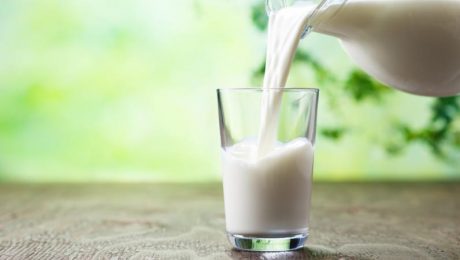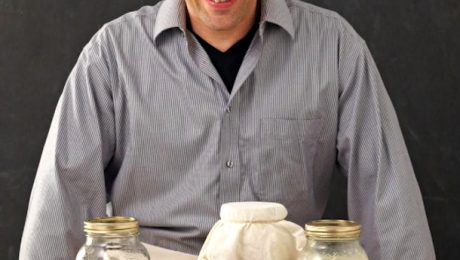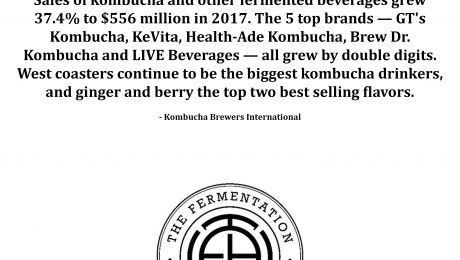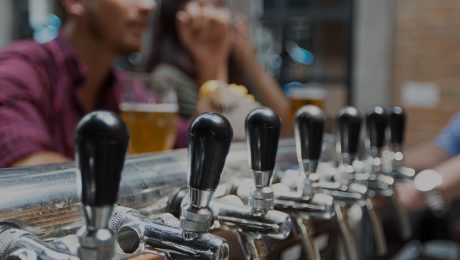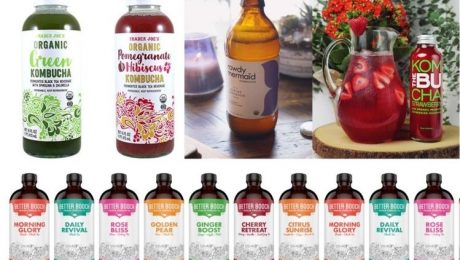Study: Fermented Dairy Products Linked to Lower Risk of Heart Disease
Fermented dairy products reduce the risk of heart disease, according to a new study. By analyzing food journals a group of men kept over 11 years, scientists concluded fermented dairy products have great health benefits. Part of the reason this is important is because dairy products with a high-fat content have been villainized by health experts, causing the public to cut back full-fat milk products. However, the new study is now prompting researchers “to question whether dairy products should be evaluated solely on their fat content, but rather their nutritional content.”
Read more (Newsweek)
- Published in Science
Coca-Cola Acquires Mojo Kombucha in Landmark Industry Deal
Mojo Kombucha — part of Australian-based Organic & Raw Trading Co. — was acquired by Coca-Cola. It’s exciting news for fermenters. Industry leaders are calling it a landmark deal, making kombucha more mainstream. Coca-Cola is the world’s largest drink company, and they’ve been diversifying their products to include healthier options for consumers.
Read more (Reuters) (Photo: Mojo Kombucha)
- Published in Business
Fermentation and Mixology – Fermentation Guru Alex Lewin Shares Techniques
Where do fermentation and mixology meet? Fermentation guru Alex Lewin and author of “Kombucha, Kefir, and Beyond” is sharing his techniques at Culture Club 101 in Pasadena on Oct. 7. Alex will share the history of fermented drinks, their health benefits and demo fermented drink creations. Join us Oct. 7 act Culture Club 101 in Pasadena.
Read more (Culture Club)
- Published in Food & Flavor
Statistics Prove Kombucha All the Rage
Statistical proof that kombucha is all the rage. Sales of kombucha and other fermented beverages grew 37.4% to $556 million in 2017. The top five brands — GT’s Kombucha, KeVita, Health-Ade Kombucha, Brew Dr. Kombucha and LIVE Beverages — all grew by double digits. West coasters continue to be the biggest kombucha drinkers, and ginger and berry the top two best selling flavors. The Fermentation Association (TFA), getting more people to enjoy fermented products. Join us at fermentationassociation.org .
- Published in Business
Kombucha Sales Predicted to Soar in Next Few Years
Kombucha sales are expected to soar in the next few years. Forbes featured the probiotic-packed, fermented tea, predicting that kombucha “is likely to soon rival craft beer and, eventually, the slumping soda category.” Kombucha sales in 2017 were $1.5 billion, but industry experts say it’s not long before kombucha hits multi millions in sales.
Read more (Forbes)
- Published in Business
Lawmakers Push for KOMBUCHA Act, Aiming to Increase ABV Level for Kombucha
Lawmakers from Oregon and Colorado are advocating for a new bill that would modernize outdated federal alcohol taxes. Known as the KOMBUCHA Act (Keeping our Manufacturers from Being Unfairly Taxed while Championing Health Act), the bill aims to increase the ABV for kombucha from 0.5 percent to 1.25 percent so kombucha can be sold as a non-alcoholic beverage. Currently, many kombucha brewers are forced to pay an alcohol tax and abide by regulations intended for the alcohol industry. Kombucha Brewers International is lobbying for the bipartisan bill. You can signup to track the bill here, at congress.gov.
Read more (Kombucha Brewers International) & Read more (Sen. Ron Wyden, D-OR)
- Published in Business
Kombucha: Alcohol or Tea? Lawsuit Pushes for ABV Transparency
Should kombucha be sold next to alcohol or soft drinks? Numerous big-name kombucha brands are under fire for alleged false advertising. Tortilla Factory (the parent company behind Kombucha Dog) is suing Trader Joe’s, Better Booch, Makana Beverages and Rowdy Mermaid Kombucha for supposedly violating the law by exceeding the 0.5% abv threshold. Tortilla Factory used a third-party lab to test the alcohol levels of the brands, and found their abv at 0.6-2.7%. Kombucha Dog is one of few kombucha brands that is sold as alcohol (it contains 1.4% abv), and they claim in the lawsuit that the mislabeling of the accused brands is unfair competition since most consumers will purchase a drink with lower abv. This is the second time Kombucha Dog has brought a lawsuit against kombucha brands. Earlier this year, they sued Health Ade and Humm Kombucha for understating their sugar content, allegedly putting double the amount of sugar in the drinks as the label states.
Read more (Food Navigator)
- Published in Business
The World’s First Hard Kombucha Brewery Gives Us Major Surf Shack Vibes
JuneShine – the world’s first hard kombucha brewery – was started by surfer friends who wanted a transparent, healthy alcohol brand for active people. The organic kombucha has 6% ABV, and launched their brand in May by opening a permanent tasting room in San Diego.
- Published in Business
Kombucha Makes a Comeback in Russia
A dedicated kombuch addict knows kombucha originated in China. But the fermented tea also has roots in Russia. An LA Times article highlights the reemerging food trend in the Soviet Union. The favorite drink made from a “tea mushroom” (scoby) was a favorite before carbonated, sugar-filled sodas entered the market.
- Published in Food & Flavor
Flexible Capital Fund invests $300,000 in Vermont Kombucha, Aqua ViTea
Big news for Aqua ViTea Kombucha – the kombucha producers got a $300,000 investment from the Flexible Capital Fund (Flex Fund) to grow Aqua Vitea’s Vermont operations. Aqua ViTea is credited with building the market for in-store, self-serve kombucha fountains. It’s helped the brand grow big the past few years.
- Published in Business

